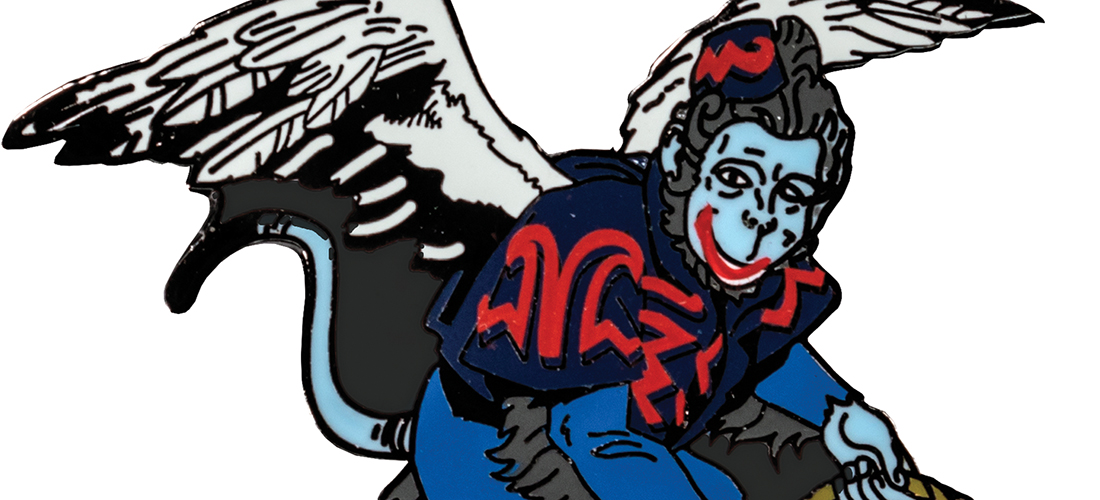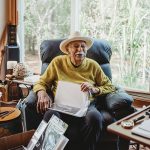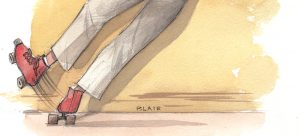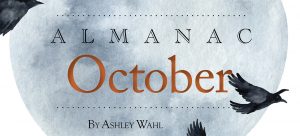
A Fear of Flying (Monkeys)
But that was the old story
By Maria Johnson
Of all the stories I knew as a kid, one stands out as being the most terrifying to me: the movie version of The Wizard of Oz.
Specifically, the scenes with the flying monkeys.
The Wicked Witch of the West was bad enough, always spying on Dorothy and Toto with her crystal ball, a sort of early security camera.
But the flying monkeys sent me over the edge, especially when the WWOW dispatched them to capture Dorothy and Toto.
“Now fly, fly,” she commands, and the sky outside her window fills with a squadron of her flapping minions in their little bellhop jackets.
So one minute, little Dorothy is kicking it with her newfound friends and her very cool pup, and the next minute the monkeys literary drop out of the sky, scoop up her and Toto and tear the stuffing out of her best pal, the Scarecrow. (And yes, I sort of had a thing for him. Love is love, OK?)
Anyway, I bolted straight into the lap of my dad — who always sat in “his chair” to watch this classic movie when it came on TV once a year — and buried my face in his chest while he held me and assured me that everything would turn out OK for Dorothy, Toto and the Scarecrow, though in hindsight I wonder if my dad was troubled by the fact that I was drawn to a straw man without a brain.
I found him comforting. My dad, I mean.
But even now, the thought of those freakin’ monkeys is enough to raise my blood pressure.
So, when I heard a traveling production of Wicked — the Broadway-born backstory of the witches in The Wizard of Oz — was coming to town this month, I decide it was high time to confront what made me uncomfortable — or, as my editor and I have taken to calling it, “face the monkey.”
And that’s how I ended up calling Travante Baker, who plays Chistery, the main flying monkey in Wicked.
I was hoping that Travante could help me get over my childhood fear of airborne apes who work for a witch and dress like bellhops. Call it a niche phobia.
Anyway, I asked him if he’d ever seen the movie — he’s 28, so you never know — and he said yes.
And I asked him if he was unhinged by the flying monkeys, and he said no, but in a nice way.
“They weren’t at the forefront of my Wizard of Oz experience,” is how he put it. How sweet is that?
But he confided that the movie’s music upset him, specifically the menacing music that plays when the crabby schoolteacher (who turns into The WWOW in Dorothy’s dream), rides her bike to Dorothy’s house to stir up trouble.
“You mean the music that goes, “Da-da-da-da-DAH-DAH, da-da-da-da-DAH-DAH?” I asked.
And Travante said, “Yes!”
And we bonded in laughter and terror.
Travante shared a little about himself: how he grew up in Miami Gardens, Florida; how his mom dragged him to an audition for a performing arts magnet program in middle school; how he got in, and was like, “Wait a minute. This is . . . fun.”
His first role, aptly enough, was in a production of The Wiz, a Harlem-set Broadway musical based on the wizard story.
“It’s sort of come full circle,” he says.
After two years at Syracuse University, Travante joined an international touring production of West Side Story and spent three summers at Flat Rock Playhouse, the official state theater of North Carolina.
“I love the Flat Rock Playhouse,” Travante says.
There he worked with choreographer Chase Brock, a Flat Rock native. Back in New York, he was helping Brock choreograph another show when he landed the physically demanding role of Chistery in Wicked.
Chistery, who works for the dastardly Wizard of Oz, appears in the first act, wheeling, lunging and climbing all over the stage.
He sprouts wings — Travante pulls on a cord sewn into his costume — when Elphaba, a magically-gifted green girl who becomes the WWOW later in life, unknowingly casts a spell that benefits the wizard.
Later, Elphaba bargains with the wizard to win the monkeys, who’ve lost their voices, and she sets them free.
Fancy that: the future WWOW as an animal rights activist.
Obviously, the flying monkeys in Wicked are very different from the flying monkeys in the movie. The don’t do the dirty work of a wicked witch. They look more bat-like, less bell-hoppy.
They’re also more sympathetic creatures, themselves the victims of oppression, just as they are in the original 1900 book, The Wonderful Wizard of Oz.
The movie left that part out.
Wicked restores that thread, as well as the voice of Chistery, who eventually makes gestures of good will toward humans.
Some audiences clap when that happens.
“There’s this relationship between humans and animals being repaired,” says Travante. “There’s a trust being mended.”
Travante and I wish each other well, and I tell him I hope to see him and the other flying monkeys on stage in Greensboro. Somehow, when the story is told this way, the idea doesn’t faze me at all. OH
Maria Johnson is a contributing editor of O.Henry. Email her at
ohenrymaria@gmail.com.





